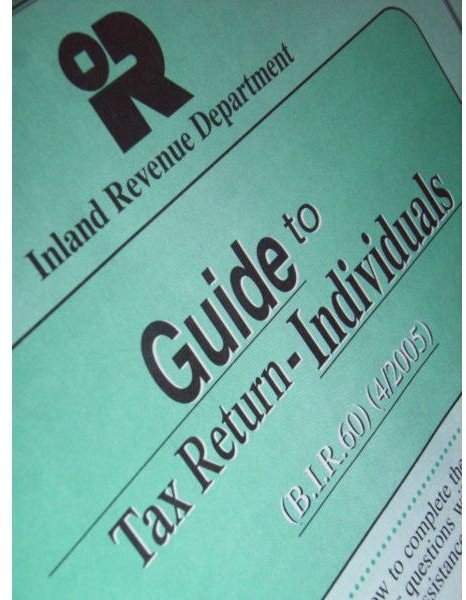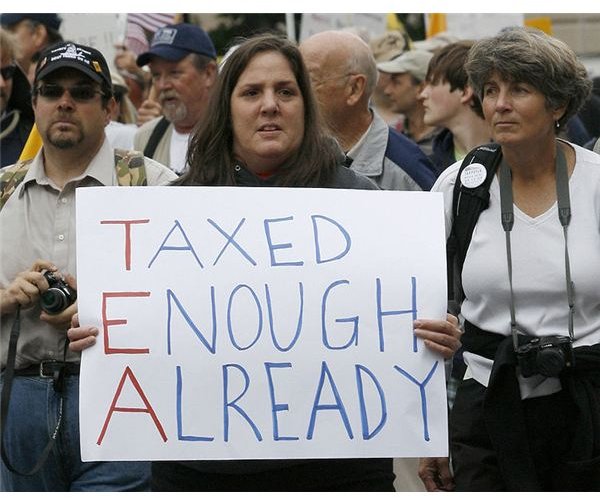Penalty for Failure to Report Income on a Tax Return: Understanding the Criminality of Tax Evasion & Other Acts of Tax Failures
Is There a Real Reason to be Afraid of the IRS?
The IRS, or the Internal Revenue Service, is said to be the most feared federal agency. It is capable of imposing substantial amounts of penalties for failure to report income on a tax return. The agency has brought several tax offenders to criminal courts; those individuals received sentences for several years of incarceration, as punishment for filing inaccurate taxes.
However, the IRS maintains that only those who willfully and deliberately evade or willfully neglect or disregard tax rules and regulations, have reasons to fear the civil and criminal penalties imposed by them. A taxpayer who shows considerable proof that he made reasonable attempts and caution in preparing his return, and proves he acted in good faith will not be sanctioned with heavy penalties, or be charged for criminal offenses.
Rather than be in constant fear of the IRS and the agency’s capability to impose severe punishments, let us take a closer look at each penalty for failure to report income on a tax return. That way, we could find out exactly what to do or not to do to avoid these penalties, and thus lessen our anxieties pertaining to tax matters.
Tax Reporting Failures Considered as Criminal Offenses:
The IRS will recommend for criminal prosecution any taxpayer found guilty of the following tax reporting failures:
- Tax Evasion
- Preparing and filing a fraudulent tax return
- Making or submitting fraudulent and false statements
- Intentional failure to file a return, supply the correct information, or pay the tax due
Penalty for Tax Evasion

The Internal Revenue Code 7201 states that:
“Any person who willfully attempts in any manner to evade or defeat any tax imposed by this title or the payment thereof shall in addition to other penalties provided by law, be guilty of a felony and upon conviction thereof, shall be fined not more than $ 100,000 ($500,000 in case of a corporation), or imprisonment of not more than 5 years, or both, together with the costs of prosecution.”
What does Tax Evasion Constitute?
According to a Supreme Court ruling, tax evasion exists if the government, through the IRS, can show proof beyond reasonable doubt that there is:
(1) Tax deficiency
(2) Willful attempt to evade tax
(3) It has been proven that the taxpayer committed acts of misleading the government by concealing funds to avoid tax payment, through acts of evasion like placing one’s assets or properties in another person’s name, or dealing in cash and paying debts using another person’s name, or keeping two sets of books and making false invoices or supporting documents.
Merely failing to pay assessed tax, is not considered by the courts of law as tax evasion. However, tax evasion as defined, means there is a fraudulent act involved in order to escape tax payments, whether in part or in its entirety, and without any doubt that the act was done intentionally, and not out of error or difference of opinion.
Acts of attempting to reduce the amount of taxes due and payable, by way of different interpretations of tax laws or through skillful accounting manipulations, are not considered as acts of tax evasion.
Nevertheless, not being guilty of tax evasion does not exempt the taxpayer from other criminal charges and penalties. The attempt to file a return in a manner other than that required by law is considered as an “act of attempting” to evade or defeat tax or a substantial portion of the tax due. These acts are still considered as crimes, for which the taxpayer can still be tried in court and be penalized accordingly.
Penalty for Not Filing an Income Tax Return
An individual found guilty of not filing any return at all, can be fined up to a total of $ 25,000 for every year of non-filing plus a maximum jail term of one year.
Penalty for Filing a Fraudulent Tax Return
A reference to “failure to report” may also include intentionally preparing and filing a fraudulent tax return, as well as furnishing false statements to support all fabricated information submitted.
What is a fraudulent return?
The IRS defines a fraudulent return as a return filed by an individual using another person’s name, or using another person’s Social Security Number (SSN), or where all information presented in the return is without solid basis and documentation.
IRS Penalty for Fraudulent Return:
The penalty for underpayment due to fraud is 75 percent based on the amount assessed as fraudulent by the IRS. This penalty, among many others, will be added to the regular tax, which the taxpayer should have paid had he filed his income taxes properly.
Continuation of Penalty for Fraudulent Return: Additional Penalties
Aside from the penalty imposed for filing of fraudulent returns, the following penalties will be added, and are based on the assessment made by the IRS in connection with the taxpayer’s failure to report the correct income tax:
Penalty for Late Filing due to Filing of a Fraudulent Return: Since the taxpayer was shown to file a report that did not contain the correct income subject to tax, a penalty of 15 percent for late filing will be imposed based on the correct amount of tax due for each month, or any fraction of a month that the correct return is late. The maximum amount of penalty for late filing of the correct return is 75 percent of the amount due.
Penalty for Frivolous Tax Submission: An income tax return is considered as frivolous if it does not contain the proper information to allow for the correct computation of tax. In another context, a frivolous return also means containing information clearly showing that the taxpayer reported a substantially incorrect tax report.
A $5,000 penalty is added to any other penalty imposed by law, as a result of underpayment caused by a frivolous return, or if a frivolous return is related to a fraudulent act in order to evade tax.
Penalty for Failure to Supply Social Security Number:The penalty is $50 for every count of a failure to furnish the SSN. This refers to the non-inclusion of the SSN where it is required on the return; or where the taxpayer did not furnish his SSN to other persons or entities who needed this information in filing their respective returns.
Penalty for Filing Inaccurate Returns

Accuracy-Related Penalty_:_ An additional penalty of 20 percent is imposed if it is proven the taxpayer substantially understated his income tax due to acts of negligence or deliberate disregard of the IRS rules and regulations about filing and reporting the tax obligation.
The amount of penalty is computed based on the amount of underpayment, which the IRS has verified and proven to be based on negligence or disregard. An example of negligence or willful disregard is the taxpayer’s failure to maintain the proper books of accounts and other supporting records.
However, this penalty is not computed on the portion of tax underpayment being assessed on the basis of tax fraud.
Penalty for Filing Erroneous Claim for Refund
Any portion of a tax return that contains an erroneous claim for refund will be fined a 20 percent penalty of the disallowed claim, but will consider the portion that is supported by a legitimate income tax credit. Likewise, it will not be computed on the portion considered as underpayment, but be assessed based on the fraudulent tax return.
What to Do to Avoid Being Charged for Criminal Offenses?

Visit the IRS page for Filing Information where you can get more details about the IRS Civil and Criminal penalties for minor tax offenses like late filing and erroneous filing. (Penalties Section)
The tax penalty for a minor offense is less severe than the penalty for failure to report income on a tax return. Thus, it would be best for those who receive a written request from the IRS pertaining to any filing deficiency, to immediately attend to the matter. That way, they can avoid their tax returns being misconstrued as evasive, fraudulent, or intentionally withholding information, by showing reasonable proof that the deficiency was committed in good faith.
Accordingly, the IRS does not file criminal charges against errant tax payers who do not have enough resources to settle their entire tax obligation, provided, they voluntarily cooperate, and work out a payment plan with the IRS to settle their tax liabilities.
Reference Materials and Image Credit Section
Reference Materials:
- https://www.irs.gov/publications/p17/ch01.html#en_US_publink1000170711
- https://www.taxalmanac.org/index.php/Internal_Revenue_Code:Sec._7201._Attempt_to_evade_or_defeat_tax#Statute
Image Credit:
- https://commons.wikimedia.org/wiki/File:IRS_building_on_constitution_avenue_in_DC.jpg
- https://commons.wikimedia.org/wiki/File:HK_IRO_08_Guide_2.jpg
- https://commons.wikimedia.org/wiki/File:Tea_Party_sign_-_Taxpayer_March_on_Washington.jpg
- https://upload.wikimedia.org/wikipedia/commons/e/ec/Bayh_Tax_Cut.jpg
